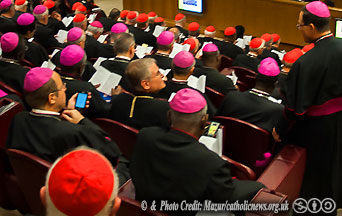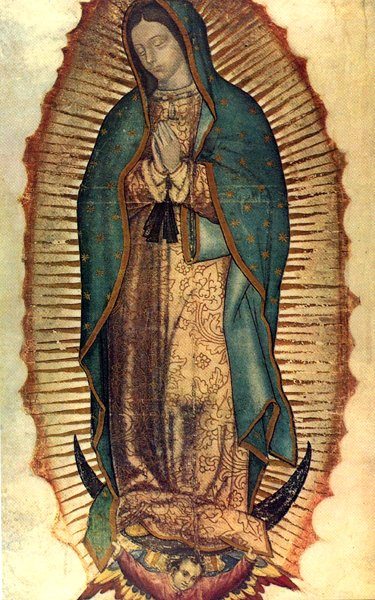
On October 4, eve of the opening of the Special Assembly of the Synod of Bishops for the Pan-Amazon Region, representatives of the Plinio Corrêa de Oliveira Institute (IPCO) officially delivered to the Synod Secretariat a “Petition to the Synod Fathers for a Christian and Prosperous Amazon (rather than a huge ‘green slum’ divided into tribal ghettos).”
The document was signed by more than twenty thousand residents of the Brazilian, Peruvian and Ecuadorian Amazon, whose signatures young IPCO volunteers collected in public campaigns in the streets of the main Amazonian cities during their school vacation.
The Final Document of the Synod Assembly addressed none of the requests that the Amazonian population had respectfully made. Instead, it heeded the claims of international groups promoting environmental psychosis and a minority of indigenist militants brought to Rome by Pan-Amazonian Ecclesial Network/Red Eclesial Pan-Amazónica (REPAM).
Recognizing the influence of this ideological publicity lobby, already in the first paragraph of the Final Document the Synod Fathers welcome the “notable presence of people coming from the Amazon world, who organized acts of support with different activities,” and for the “massive presence of the international communications media” (Final Document, no. 1).
While the IPCO Petition signatories asked the Synod to “thank God for the evangelization of missionaries and the civilizing action of colonizers who brought the benefits of progress”(Petition, no. 1), the Synod Fathers denounced “the military, political, and cultural colonization” motivated by “the greed and ambition of the conquerors” (FD no. 15), considered “the influence of Western civilization” to be negative (FD no. 14), and even worse, stated that “Christ’s announcement was often made in collusion with powers that exploited resources and oppressed populations” (FD no. 15). All this is contrary to historical truth and an insult to the heroic missionaries who carried out one of the greatest missionary epics since the foundation of Holy Mother Church.
Furthermore, the Synod Fathers practically renounced converting the still pagan natives by declaring that “ecumenical, interreligious, and intercultural dialogue must be assumed as an indispensable way of evangelization” (FD no. 24), and that the Church must undergo a “cultural conversion” and limit the announcement of the Good News to “being present, respecting, and recognizing their values, living and practicing inculturation and interculturality” (FD no. 41). The Synod Fathers categorically abandon their traditional mission: “We reject a colonialist-style evangelization. Announcing the Good News of Jesus implies recognizing the seeds of the Word already present in cultures. The evangelization we propose today for the Amazon is the inculturated announcement that generates intercultural processes” (FD no. 55).
Instead of hearing people’s “cry of anguish facing the danger that the Amazon is transformed into an immense ‘green slum,’” (Petition, no. 5), the Synod Fathers improperly meddled into scientific matters for which they have no divine mandate or technical competence (an evident display of “clericalism”). Accordingly, they falsely declared that deforestation affects “close to almost 17% of the total Amazon forest and threatens the survival of the entire ecosystem” (FD no. 11); that “the Amazon region is essential for the distribution of rainfall in the regions of South America” (FD no. 6), and that “the development of energy policies that drastically reduce carbon dioxide (CO2) emissions and other climate change-related gases is urgently needed” (FD no. 77).
Moreover, the Final Document describes an alleged “dramatic situation of destruction that affects the Amazon,” the jungle of which is supposedly “in a frantic race toward death” leading to “the disappearance of the territory and its inhabitants, especially indigenous peoples” (FD no. 2). This supposedly results from the “appropriation and privatization of natural assets” and what they call “unsustainable mega-projects,” that is, “hydroelectricity, forest concessions, monocultures, roads, waterways, railroads, and mining and oil projects” (FD no. 10), stemming from the current “economic model of predatory and ecocidal development” (FD no. 46) and the “predatory extractivism that responds to the logic of greed typical of the dominant technocratic paradigm” (FD no. 67).
The Synod Fathers deem it necessary to have an “individual and community ecological conversion that safeguards an integral ecology” (FD no. 73) by assuming “a simple and sober life” (FD no. 17) and “changing our eating habits (excess consumption of meat and fish/shellfish) to more sober lifestyles” (FD no. 84).
Instead of “strongly repudiating neo-pagan ideologies” that spread “a distorted concept of respect for nature” (Petition no. 2), the Synod’s Final Document affirms the need to preserve “rivers and forests, which are sacred spaces, as sources of life and wisdom” (FD no. 80), and that the life of Amazonian communities “is reflected in the belief and rites concerning the action of the many-named divine spirits, with and in the territory, with and in relation to nature” (FD no. 14). Likewise, the “good living” of indigenous peoples (sic!) is said to be characterized by an existence “in harmony with itself, with nature, with human beings, and with the supreme being, since there is an intercommunication between the entire cosmos, where nothing excludes or is excluded. … Such an understanding of life is characterized by the connectivity and harmony of relationships between water, territory, and nature, community life and culture, God and the various spiritual forces” (FD no. 19).
Instead of “repudiating the communist-tribalist utopia” of Liberation Theology (Petition, no. 3), the Synod Fathers declared that “Indian theology, the theology with an Amazonian face, and popular piety, are already riches of the indigenous world, its culture, and spirituality” (FD no. 54) and that “ecotheology, creation theology, indigenous theologies, and ecological spirituality” must be included in the academic curricula of priestly formation with an Amazonian face (FD no. 108).

The IPCO laments the fact that, instead of opening their souls to the Petition’s final request that the Blessed Virgin preserve Catholic unity and the vocation of Amazonian nations, the Synod Fathers have instead responded to preternatural effluvia emanating from the Pachamama figure present in the Synod Hall and worshipped in idolatrous ceremonies in the Vatican gardens and in the church of Santa Maria in Transpontina. By not making a clear statement to deplore this unprecedented event they also ignored the profound shock that it has caused in the world’s faithful.
The IPCO hopes that Pope Francis, in the announced post-synodal Apostolic Exhortation, will reject the above-denounced errors and the ecclesiological revolution that the Final Document advocates with its proposals to grant official, broad, and rotating ecclesial ministries to lay people of both sexes, to open to women the ministries of Lector and Acolyte, and to authorize the priestly ordination of married community leaders.
São Paulo, October 30, 2019
Plinio Corrêa de Oliveira Institute

